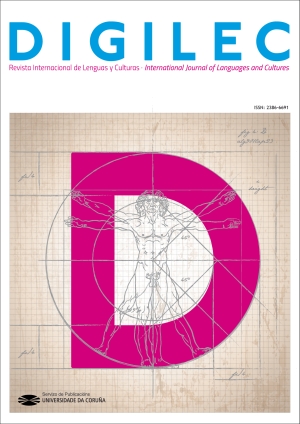Using Moodle's branching scenario tool to teach and assess linguistic mediation strategies
Contenu de l'article principal
Résumé
In the current global context, languages are the most direct expression of our culture, and linguistic diversity is a reality we need to protect and boost. Existing since 2001 and being officially introduced in the Foreign Language Teaching (FLT) curriculum in 2019, the concept of linguistic mediation mainly aims at boosting plurilingualism. Both teachers and students across Europe start using linguistic mediation strategies to perform different mediation activities relying on the descriptors for all levels provided by the new Companion Volume and extensive cascading formation programs. In this article, we intend to prove Moodle’s branching scenario tool to address the teaching and assessing of mediation strategies to explain new concepts through synchronous and asynchronous sessions by making a contribution to the teaching and evaluation process of H5P content for C2 level in the field of adult education, more precisely in the Official School of Languages (OSL). Thus, having provided a theoretical and methodological framework supporting those mediation tasks, we will then provide a sample action-oriented scenario using Moodle’s branching scenario tool to facilitate the acquisition of the mediation strategies to mediate texts, communication and concepts using an AOA and taking potential difficulties in its implementation into consideration. We will finally share observations and suggest further research.
Téléchargements
Détails de l'article
Références
Council of Europe (2001). Common European framework of reference for languages: Learning, teaching, assessment. Cambridge University Press.
Council of Europe (2020). Common European Framework of Reference for Languages: Learning, Teaching, Assessment. Companion Volume. Council of Europe.
Krashen, S. D., & Terrel, T. D. (1988). The Natural Approach. Language Acquisition in the Classroom. Prentince Hall International.
North, B. & Piccardo, E. (2019). The Action-oriented Approach. A Dynamic Vision of Language Education. Multilingual Matters.
Trovato, G. (2019). Mediación lingüistica y enseñanza del español/LE/. ArcoLibros.


